Pyotr Rumyantsev. The youth of the commander
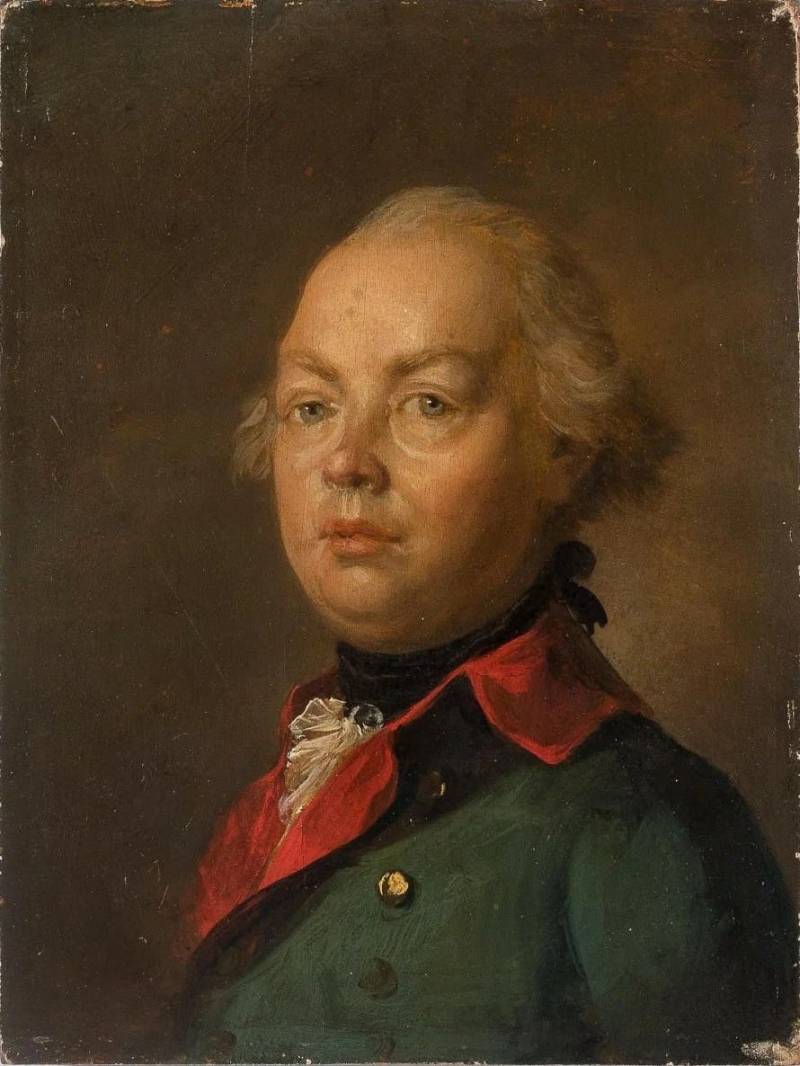
S. Tonchi. Portrait of Count Pyotr Alexandrovich Rumyantsev-Zadunaisky
Pyotr Aleksandrovich Rumyantsev seems to have not been forgotten by his descendants, and the story about him and his victories is in every textbook stories. However, he is not one of the “first-rank military geniuses,” and not everyone will remember him if you ask them to list the best commanders of Russia right off the bat. In this sense, he is far from Suvorov, Ushakov, Kutuzov, Zhukov, even Bagration. The results of voting for the title of the best Russian commander of all time (“Name of Victory”), published on May 9, 2014, are typical: Suvorov took first place, Zhukov took second place, and Alexander Nevsky took third place. Behind them were Kutuzov, Ushakov, Rokossovsky, Nakhimov, Dmitry Donskoy, Skobelev and Ermolov.
Meanwhile, Rumyantsev’s leadership talent was also recognized by Frederick II (the Great). And the same Suvorov treated Rumyantsev with the greatest respect, and F. Rostopchin recalls his letter to Alexander Vasilyevich’s adjutant E. Fuchs:
Suvorov ordered Fuchs:
We will talk about Pyotr Aleksandrovich Rumyantsev-Zadunaisky in this article.
Origin of the great commander
The future Field Marshal General was born on January 4 (15), 1725, a few weeks before the death of Peter I, whose illegitimate son he is sometimes called. The first Russian emperor really had a relationship with Maria Matveeva, who in July 1720 was married to the former tsar's adjutant Alexander Rumyantsev (Rumyantsov), an active participant in the Northern War, who also played a huge role in the return of the fugitive Tsarevich Alexei to Russia.
A. Rumyantsev’s letter to D. Titov (according to other sources, to Tatishchev) is a most valuable source of information about the last days of the life of the unfortunate son of Peter I. Grand Duke Nikolai Mikhailovich, who studied the history of his dynasty, wrote about Maria Matveeva:
He was one of those who agreed with the “royal” origin of Pyotr Rumyantsev. It is believed that the hero of the article received his name in honor of his real father.
However, it is known that Mary’s husband went on a diplomatic mission to Constantinople in October 1725 - two and a half months before the birth of his son. And Peter I at that time was already a seriously ill man, and there is every reason to believe that in the last year of his life the emperor suffered from prostate adenoma, complicated by severe prostatitis, and therefore was hardly physically able to give birth to a child for Maria Rumyantseva. Therefore, the Grand Duke, most likely, was wishful thinking - the temptation to call the great commander a scion of the Romanov dynasty was very great.
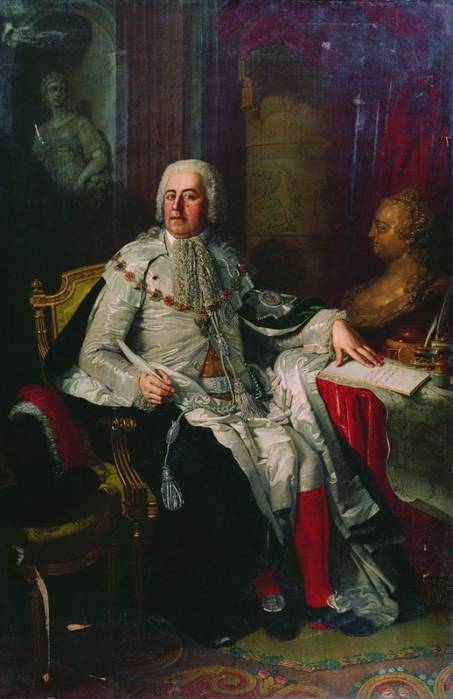
Alexander Ivanovich Rumyantsev - the father of the hero of the article, count, general-in-chief, Astrakhan and Kazan governor in the posthumous portrait of V. Borovikovsky
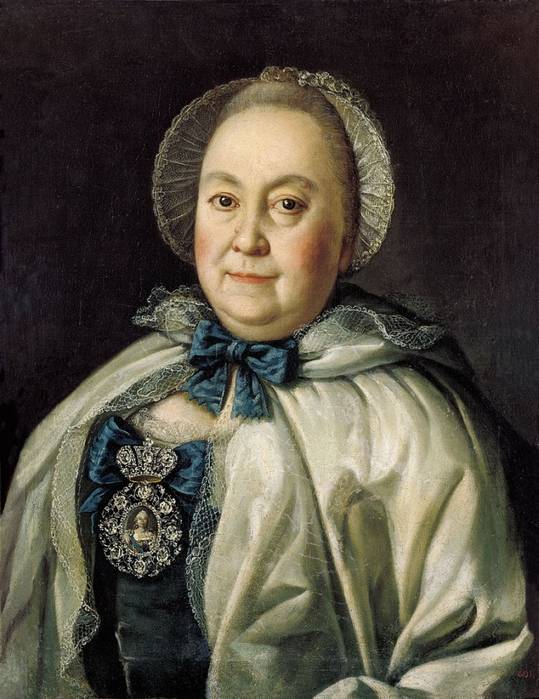
Maria Andreevna Matveeva-Rumyantseva - mother of the commander, lady of state, chamberlain, in the portrait of A. Antropov
By the way, after her death in 1788, Maria Rumyantseva became the heroine of Derzhavin’s ode:
Intelligence, breed, beauty,
And in old age I gained love
Everyone has a kind soul;
She firmly closed
Marital gaze, friends, children;
Served seven monarchs
She wore the badges of their honor.”
But we got ahead of ourselves. Let's go back to 1720.
Together with the girl “spoiled” by the emperor, A. I. Rumyantsev received villages confiscated from the executed supporter of Tsarevich Alexei A. V. Kikin (former bombardier of the “amusing regiment” and orderly of Peter I, participant in the Azov campaign, member of the Great Embassy, first head of the St. Petersburg Admiralty ). And then Peter also gave the husband of his passion a large plot of land on the left bank of the Fontanka, near the road to Tsarskoye Selo.
Empress Catherine I became the godmother of little Peter Rumyantsev.
The dissolute youth of Pyotr Rumyantsev
Like Charles XII, in his youth Pyotr Rumyantsev (Rumyantsov) became famous only for his unworthy and defiant behavior - and just like the Swedish king, he was able to direct this excessive “liveness of character” of his in the right direction after the start of military service.
Already at the age of 9 (according to other sources - 10) years old, Peter was enlisted as a private in the elite Preobrazhensky regiment. However, the father decided that a career as a diplomat would be more promising for his only son. In 1739, 14-year-old Peter was assigned to the Russian mission in Berlin. Here, left to his own devices, the teenager went on such a spree (even managed to take part in two duels) that the following year his father personally came to pick him up in the Prussian capital.
He sent his son to the St. Petersburg Land Noble Corps, where he quickly became famous for his daring and defiant behavior. It all ended with expulsion from the corps and an order to send Pyotr Rumyantsev to the active army, but not as a private or even a non-commissioned officer - with the rank of second lieutenant.
The Russian-Swedish War was going on, and Pyotr Rumyantsev (by that time already a captain) celebrated the capture of Helsingfors with his usual scope. But on the recommendation of A. Rumyantsev, the commander of the Russian troops, P. Lassi, sent him to Elizaveta Petrovna with the news of the successful end of the war.
According to tradition, the officer who brought news of a major victory to the court received a generous reward. It is not surprising that in such cases, couriers were often not appointed military officers, but relatives of influential persons or royal favorites. Such messengers would later be, for example, Nikolai and Valerian Zubov, the brothers of Catherine II’s last lover.
Elizabeth lived up to the expectations of Alexander Rumyantsev: his unlucky son was immediately promoted to colonel and appointed commander of the Voronezh regiment. And the father of the hero of the article was elevated to the dignity of count and, thus, “descending”, Pyotr Rumyantsev became a count. This elevation had no effect on his character. N. N. Bantysh-Kamensky wrote about it this way:
Alexander Rumyantsev flogged his unlucky son and threatened him with a parental curse. At this time he wrote to him:
Finally, A. Rumyantsev decided to marry his restless son to Princess Ekaterina Golitsyna, who instantly fell in love with such a brilliant gentleman, but, alas, he did not reciprocate her feelings.
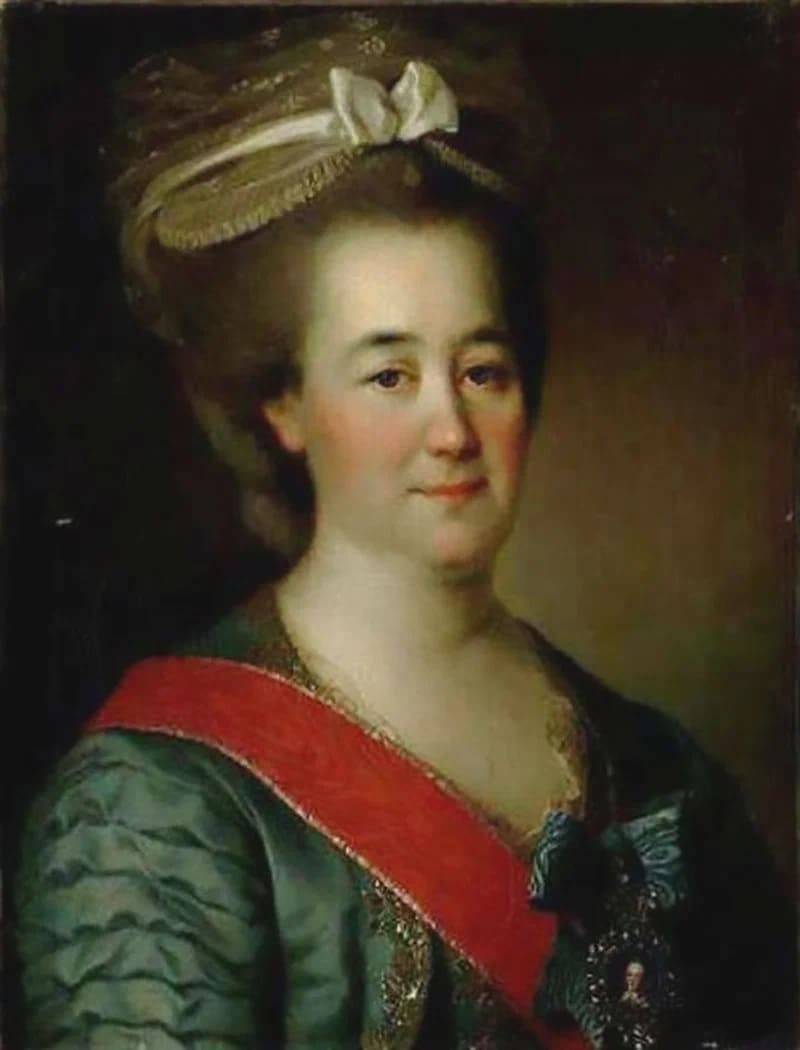
Ekaterina Mikhailovna Rumyantseva in a portrait by an unknown artist
After the birth of three sons, Peter stopped personal communication with his wife and, starting in 1762, for 17 years he only corresponded with her - until her death. While passing through Moscow, he did not enter his house, stopping either with his sister or even at an inn.
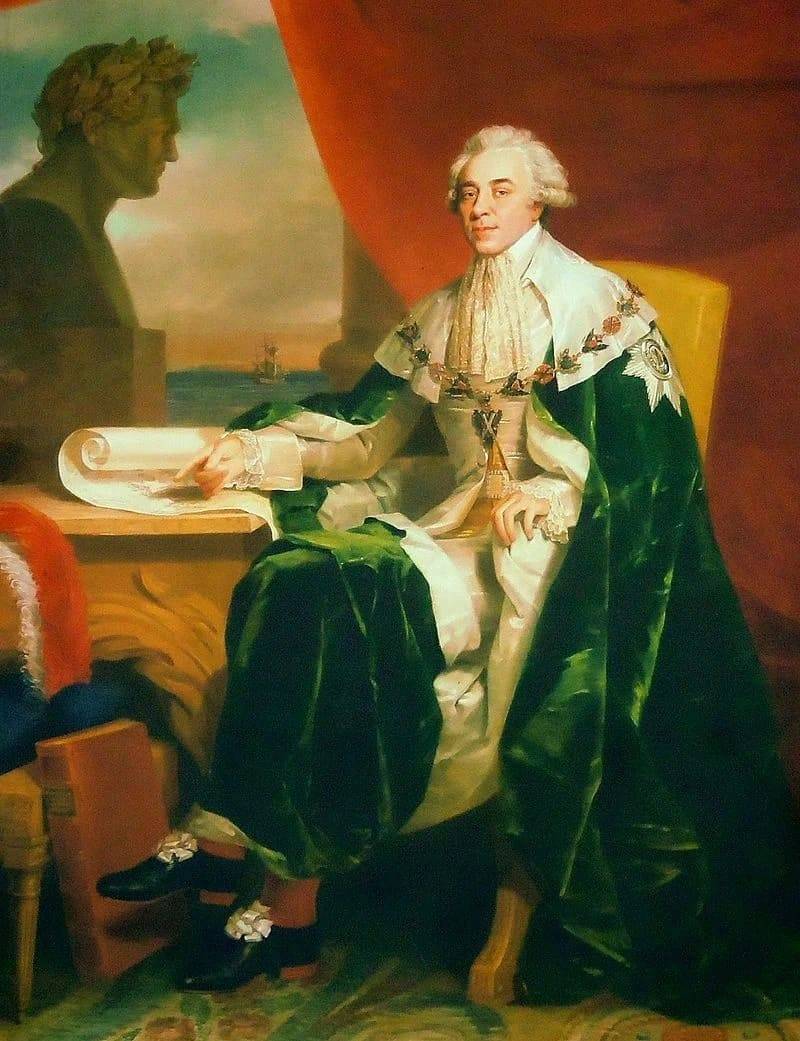
The middle son of P. Rumyantsev Nikolai in the portrait by J. Doe. State Chancellor, first Chairman of the State Council, honorary member of the Imperial Russian Academy. Based on his collection, the Rumyantsev Museum was created, which was initially located in a mansion on the Promenade des Anglais in St. Petersburg, and then was transferred to Moscow - to the famous Pashkov House
Meanwhile, in 1747–1748. During the War of the Austrian Succession, Pyotr Rumyantsev took part in the campaign of V. Repnin’s corps to the Rhine. The Russians received news of the end of this war when their troops were in the territory of the Czech Republic and Moravia.
In 1749, the father of the hero of the article died and Pyotr Rumyantsev, who became the head of the family, settled down somewhat and no longer found himself in various scandalous stories.
By the time the Seven Years' War began, Pyotr Rumyantsev already had the rank of major general, and in 1756 he was tasked with forming several grenadier and five cavalry regiments in Riga. In the summer of 1757, he was appointed to the 1st division of General V. Fermor, and the commander-in-chief of the Russian troops was then S.F. Apraksin. It was in that year, after the victory of the Russian army near Gross-Jägersdorf, that Rumyantsev was first talked about as a very promising commander.
Seven years war
The seven-year war, waged by two coalitions of European states, is sometimes called “World Zero”: fighting took place not only in Europe, but also in North America, the Caribbean, India, and the Philippines. Moreover, some Indian tribes took part in the hostilities. The Delawares, Mohicans, and Iroquois Confederacy were allies of the British, while the Hurons sided with the French. It was in North America that the first shots of the Seven Years' War were fired.
By the way, the Huron Indian is a positive hero of Voltaire’s “philosophical story” “The Innocent”. And Fenimore Cooper talks about the events of the Seven Years' War in the famous novel “The Last of the Mohicans” - its action takes place in 1757, among other things, it describes the battle of the Delawares with the Hurons, in which the allies of the British are victorious. Let us note that the “Indian novels” of this author are of a fantasy nature and were subjected to scathing criticism from his contemporaries. Mark Twain, for example, even wrote an entire study, “The Literary Sins of Fenimore Cooper,” in which you can read:
But let’s return to the real history of the Seven Years’ War, which is also called the “First Trench” and “First Artillery”. On one side then were Prussia, Great Britain, Hanover, Hesse-Kassel, Brunswick, Schaumburg-Lippe and Saxe-Gotha. On the other are Austria, France, Russia, Sweden, Saxony and many of the German states of the Holy Roman Empire.
The reasons for the Seven Years' War are called Prussia's desire to expand its territory, Austria's desire to return Silesia captured by Prussia, as well as territorial disputes between England and France over their colonial possessions. And only Russia’s participation in these showdowns that are completely unrelated to it still remains a mystery.
What goals did Elizabeth pursue in this unnecessary war for Russia, and what problems did she try to solve? After all, Prussia and the Russian Empire did not even have common borders.
Looking at the map below, you can easily see: in order to have the dubious pleasure of fighting with the troops of Frederick the Great, the Russian armies had to pass through the territory of two independent states - the Duchy of Courland and the Polish-Lithuanian Commonwealth.
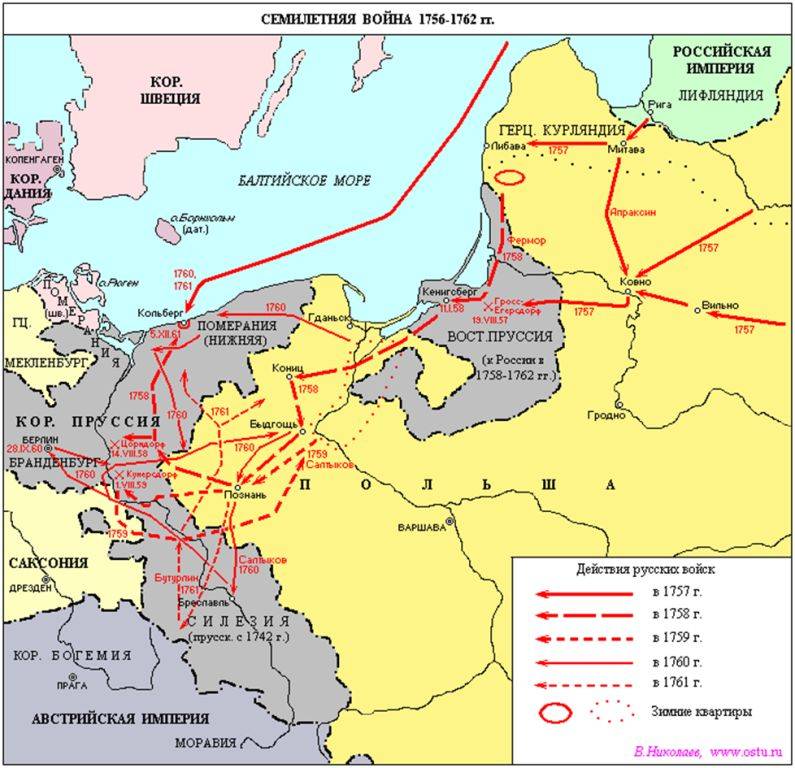
Seven Years' War on the map
Frederick II had no desire to fight with Russia, and for many years he sought friendship with our country. It is known that, having familiarized himself with the memoirs of Minich’s former adjutant, Christopher Manstein, this king personally deleted from them all passages that could damage Russian honor. Frederick the Great himself wrote:
That is, there is not even a hint of aggressive intentions towards the “eastern barbarian empire”; on the contrary, Frederick II calls on the future kings of Prussia to build allied relations with Russia.
It is curious that even Valentin Pikul, a big admirer of Elizabeth Petrovna and especially Catherine II, spoke very reluctantly about the unnecessaryness of a war with Prussia, contrary to his convictions. In the novel “With a Pen and a Sword,” he quotes the words of Louis XV, Elizabeth’s ally:
And here is what Frederick II, Russia’s opponent in the Seven Years’ War, says in his novel regarding Louis XV’s refusal to become the godfather of Grand Duke Paul:
Later, the British, allies of Frederick the Great, will provide all possible assistance to Alexei Orlov in his hunt for Princess Tarakanova.
And France in the Polish-Lithuanian Commonwealth will support the Bar Confederation (which will be defeated by Suvorov) and will provide all possible assistance to the Ottoman Empire in its war with Russia (in which the hero of the article will become famous). And even our father Dumas, Valentin Pikul, could not answer the question: why did Elizabeth fight in alliance with the enemy of Russia, Louis XV, against Frederick II, who wanted friendship with our country, and not vice versa? And why did she even get involved in the Seven Years' War?
So, the war with Prussia nevertheless began, and Field Marshal Hans von Lewald received an order from his king, after the first victory, to enter into peace negotiations with Russia - on the most honorable terms for her. However, it was not possible to defeat Levalda - Peter Rumyantsev, who became the main hero of the Battle of Gross-Jägersdorf, interfered. Let's talk about it now.
Battle of Gross-Jägersdorf
So, in May 1757, S. Apraksin’s army (numbering up to 100 thousand people) moved from Livonia to the Neman. Fermor's 20-strong corps besieged Memel (Klaipeda), which was taken on June 25 (July 6), 1757. After this, Russian troops continued their journey to the west.
In August, Apraksin led his army to the left bank of the Pregel River. At the end of this month Lewald's troops arrived here. The numerical superiority was on the side of the Russians: 55 thousand versus 40 thousand. In addition, Apraksin's Russian army was significantly superior to the Prussian army in artillery: 154 regimental and 79 field guns, 30 Shuvalov howitzers against the enemy's 35 field and 20 heavy guns. However, only part of the Russian army took part in the battle that unfolded on August 19 (30), 1757.
Apraksin and Levald did not take care of organizing full-fledged and adequate reconnaissance and therefore, at the meeting, they did not have reliable information about the real state of the armies opposing them. Lewald intended to attack the Russians in their camp, but Apraksin had already withdrawn his troops from it at that time. In addition, visibility was sharply limited by fog, and the advantage was on the side of the Prussians, who unexpectedly came out to the Russian columns and, without being confused, attacked them on the move.
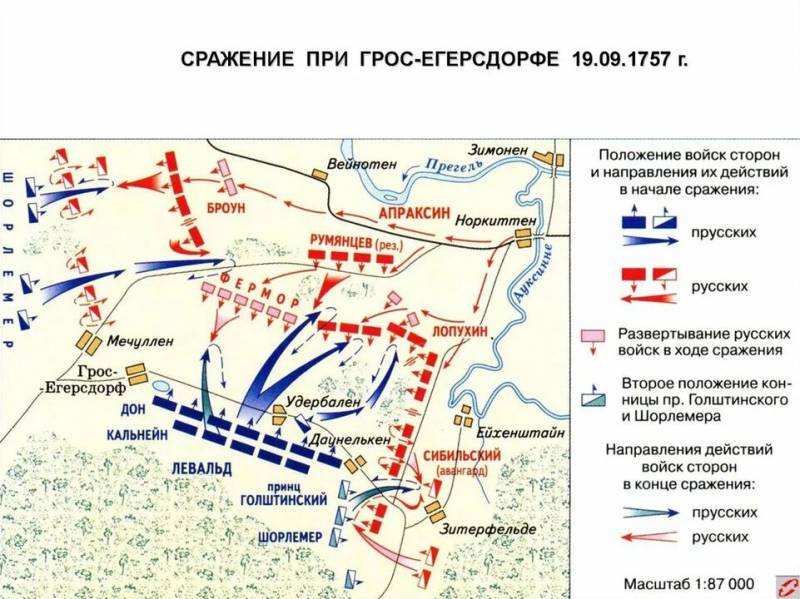
30 squadrons under the command of Schorlemmer overthrew the cavalry units on the Russian right flank and reached the rear of Fermor’s division. At the same time, Prince Holstein's cavalrymen on the other flank pushed back irregular formations of Cossacks and Kalmyks, but were driven back by Russian infantry units and artillery fire.
The main blow was taken by the 1st and 2nd Russian divisions, which were pressed against the forest, but continued to fight. In some places the battle turned into fierce hand-to-hand combat. It was especially difficult for the Saltykov and Vilboa brigades.
The reserve units of the 3rd Russian division managed to push back Schorlemmer's cavalrymen who had broken through to the rear; the Holstein cavalry, having failed to achieve success on its flank, now repelled a flank attack on the Prussian infantry. The 2nd Russian division found itself in a desperate situation, whose commander Vasily Lopukhin was mortally wounded.
But just at this time, without waiting for orders from Apraksin, Pyotr Rumyantsev began to act. He made an independent decision to attack the left flank of the Prussian army with the forces of four regiments subordinate to him - the 3rd consolidated Grenadier, Trinity, Voronezh and Novgorod. The only road was clogged with supply carts, so the soldiers had to walk through the forest.
And Bolotov recalled:
The Prussians, who were confused, began to retreat - and came under “friendly” fire from the second echelon of their own troops. After this, Lewald's left flank formations fled from the battlefield in panic.
Other units, covered by Schorlemmer's cavalry, managed to maintain order and retreat in an orderly manner.
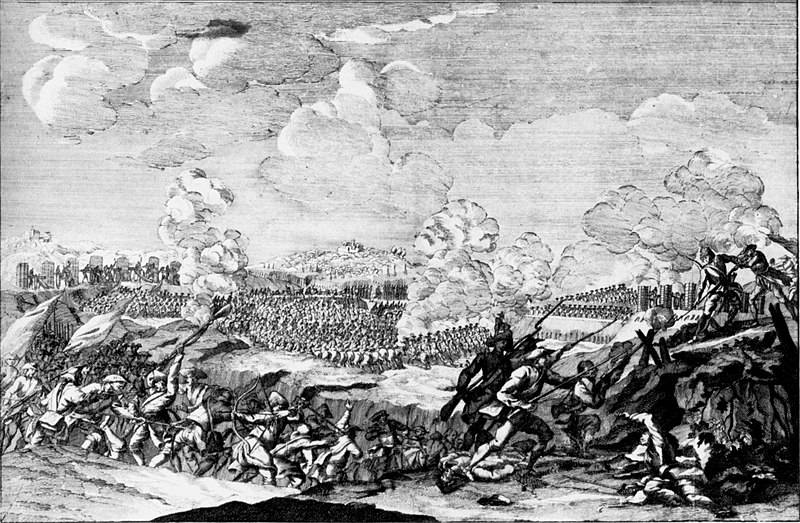
The Battle of Gross-Jägersdorf in an engraving by A. Kotzebue
The losses of the parties turned out to be approximately equal, but the victory of the Russian army was indisputable and did not raise doubts.
But Apraksin’s passivity did not allow him to fully take advantage of its fruits and develop his success. To the surprise of many, the Russian commander did not give the order to pursue the defeated enemy army. And on August 27 (September 5) he began to withdraw the army to the Neman, and this retreat was similar to flight.
Many wrote about the betrayal of Apraksin, who allegedly waited for news of Elizabeth's death and feared the wrath of her heir Peter, who had a reputation as a great admirer of Frederick the Great.
However, perhaps the reasons were much more prosaic and were connected, first of all, with the poor supply of the army - both food and fodder. The clothes and shoes of the Russian soldiers were also pretty worn out, and in the conditions of the approaching autumn this could lead to significant non-combat losses. There is also information about the outbreak of a smallpox epidemic, from which the Kalmyks especially suffered.
In St. Petersburg, Apraksin was brought to trial, but died of a stroke before the end of the investigation.
In the next article we will continue the story about Pyotr Rumyantsev.
Information